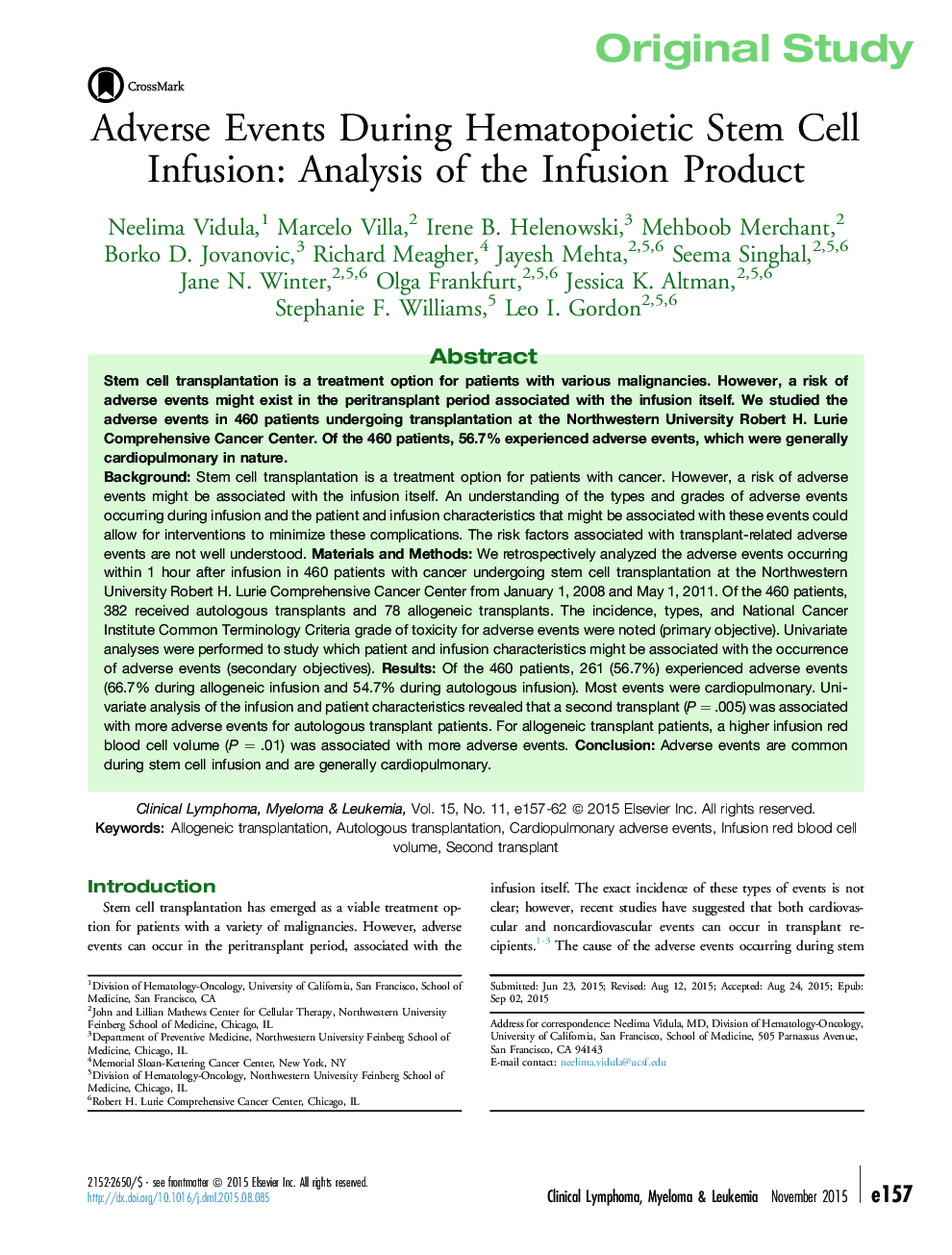| Article ID | Journal | Published Year | Pages | File Type |
|---|---|---|---|---|
| 2754373 | Clinical Lymphoma Myeloma and Leukemia | 2015 | 6 Pages |
BackgroundStem cell transplantation is a treatment option for patients with cancer. However, a risk of adverse events might be associated with the infusion itself. An understanding of the types and grades of adverse events occurring during infusion and the patient and infusion characteristics that might be associated with these events could allow for interventions to minimize these complications. The risk factors associated with transplant-related adverse events are not well understood.Materials and MethodsWe retrospectively analyzed the adverse events occurring within 1 hour after infusion in 460 patients with cancer undergoing stem cell transplantation at the Northwestern University Robert H. Lurie Comprehensive Cancer Center from January 1, 2008 and May 1, 2011. Of the 460 patients, 382 received autologous transplants and 78 allogeneic transplants. The incidence, types, and National Cancer Institute Common Terminology Criteria grade of toxicity for adverse events were noted (primary objective). Univariate analyses were performed to study which patient and infusion characteristics might be associated with the occurrence of adverse events (secondary objectives).ResultsOf the 460 patients, 261 (56.7%) experienced adverse events (66.7% during allogeneic infusion and 54.7% during autologous infusion). Most events were cardiopulmonary. Univariate analysis of the infusion and patient characteristics revealed that a second transplant (P = .005) was associated with more adverse events for autologous transplant patients. For allogeneic transplant patients, a higher infusion red blood cell volume (P = .01) was associated with more adverse events.ConclusionAdverse events are common during stem cell infusion and are generally cardiopulmonary.
